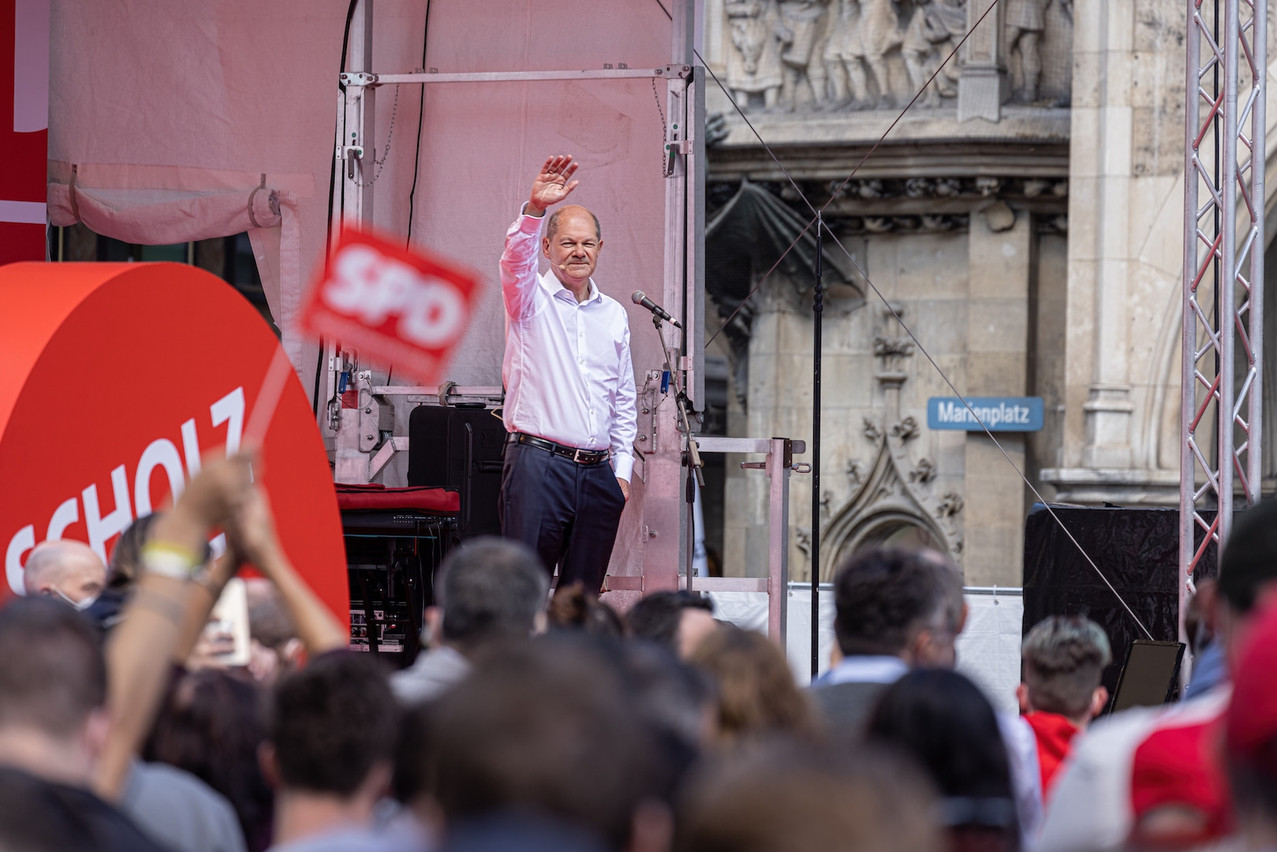The CDU party of incumbent Angela Merkel, who is stepping down as chancellor after 16 years in power, has polled historically low figures, as has its CSU sister party in Bavaria.
The latest estimates by German broadcasters predict the SPD getting close to 26% of the vote with the CDU/CSU alliance on just over 24%. The Greens look likely to get around 14.5% and the liberal are on FDP on 11.5%, which puts them both in a position to play kingmaker in any coalition agreement. The CDU, traditionally the “black” party in terms of colour visualisation, could, for example, seek a “Jamaica” coalition with the Greens and the “yellow” FDP.
The “red” SPD, meanwhile, will probably look to form a “traffic light” government with the same partners. Both of the major parties have pretty much ruled out a so-called grand coalition (or GroKo in German parlance) with each other following a rather disastrous partnership over the past three and a half years.
The populist right-wing AfD, which had polled 12.6% of the vote in 2017, is looking to get 10.5% this time but was the most popular party in the former DDR state of Thuringen and also in Saxony. But the results mean that the party no longer forms the strongest opposition in the Bundestag
The SPD and the Greens are the clear winners of the election, with the former having gained close to 5% in the polls and the Greens on an historical high as German voters expressed their growing concern over climate change and gaining close to 6% in the polls. That should lead the way for both to form a coalition, but the resurgent FDP, which eight years ago failed to win the 5% threshold to enter parliament, will also insist on having a say in any future government.
The Greens will not be happy with having to govern with the FDP, which has made a lowering of taxation part of its election programme. But the possibility of a Red-Red-Green coalition with Die Linke has been ruled out as the far-left party look unlikely to reach the required 5% threshold (although it may have some directly elected representatives in the Bundestag).
According to Der Spiegel, the FDP and Greens have agreed to hold bilateral discussions to thrash out their differences ahead of any larger coalition negotiations. If they fail, then either one of them could try to enter a three-way coalition with the two major parties, but that would lead to a government of intransigence.
Der Spiegel editor-in-chief Steffen Klusmann is urging both FDP and the Greens to define five major projects in which they could find common ground before entering a coalition, rather than focusing on details. That is the only way that major change can be brought about, Klusmann argues. German pragmatism, one can only hope, will win the day.
